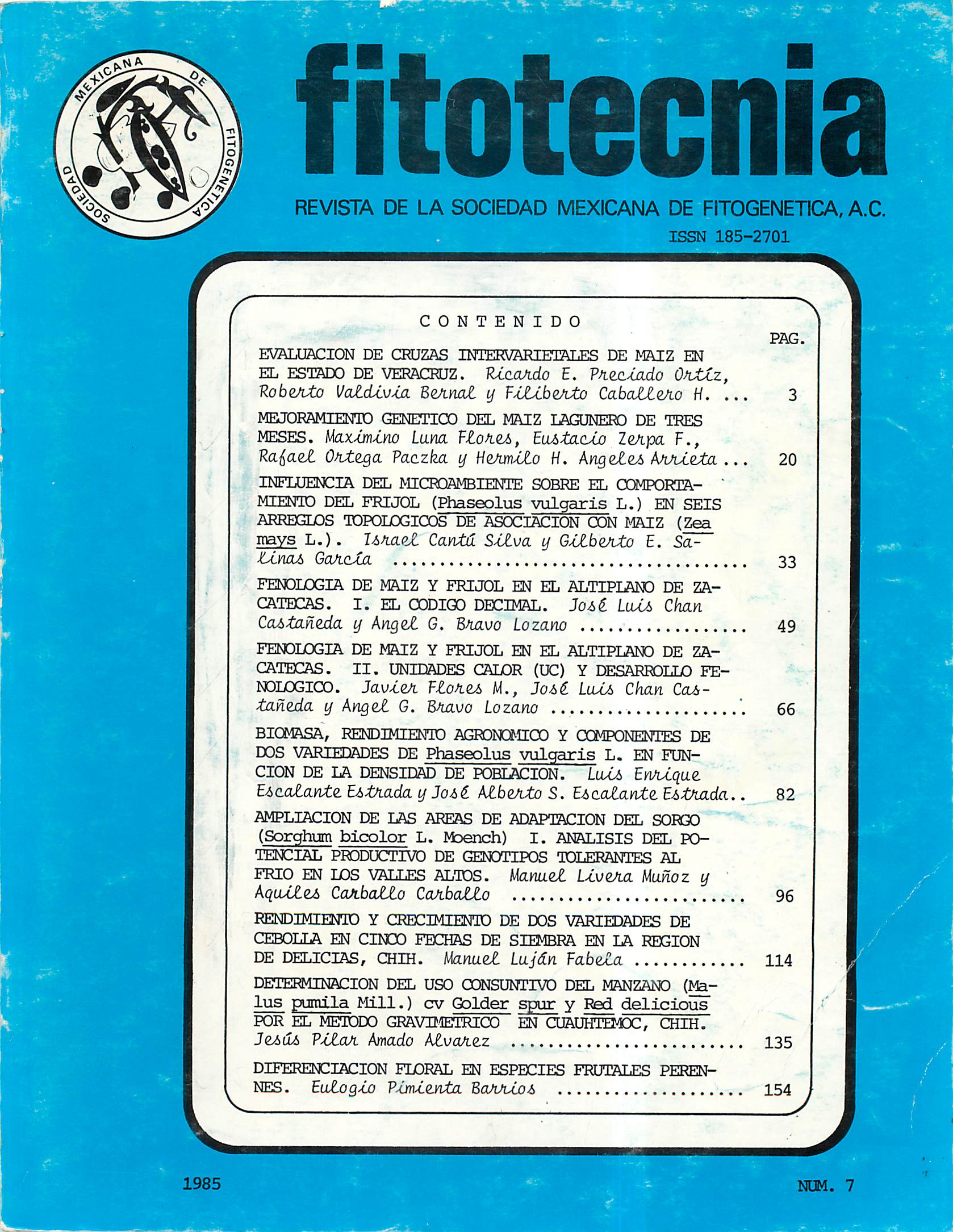EVALUATION OF INTERVARIETAL CROSSES OF CORN IN THE STATE OF VERACRUZ
Main Article Content
Abstract
The increasing need for improved high-yielding maize varieties and easiness in seed production, requires to apply breeding strategies that use at maximum the genetic variability available in a breeding program. In the state of Veracruz (México) a group of intervarietal crosses was evaluated in three locations during two growing seasons. These crosses were made in the Cotaxtla experimental station, with some experimental populations (as males) and advanced generations of commercial hybrids
(which were generally used as females). The objetives of this study were: a) to identify which cross shows the highest heterotic response to be used in a reciprocal-recurrent selection program, and b) to have an early test for combining ability that will make easier the formation of hybrids with inbred lines derived from these populations.
When heterosis was calculated based upon the male parents, since they were better adapted to Veracruz environment than the female parents, results indicated that there were some intervarietal crosses with high heterotic response (around 50%) like (Dekalb 7503) F2 x chis 501, and (T25) F2 chis 501, among others. Parents whit good combining ability were chis 501, CGB 11 and (Dekalb) F2.

